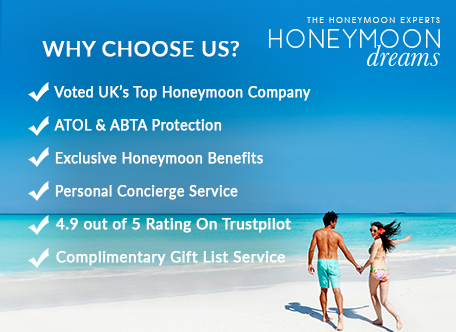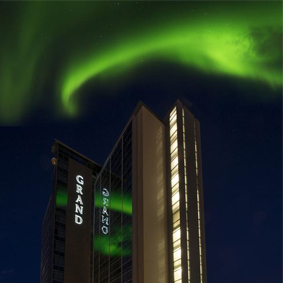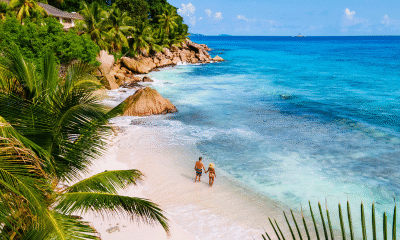OVERVIEW
Though remote and isolated, Iceland is a perfect getaway for your Honeymoon or Mini-moon. From relaxing soaks in the thermal Blue Lagoon, to exploring the Golden Circle and if you’re lucky catching a glimpse of the Northern lights your honeymoon in Iceland is sure to be full of adventure and unique experiences!
Most travellers will start their trip in Reykjavik, which is the world’s most Northerly capital. With a number of high quality hotels to choose from, the city makes a great base to get out and explore!
A popular day trip from the city is the Golden Circle tour, which visits three of Iceland’s most popular attractions, the Geysir, Gullfoss Waterfall and Thingvellir National Park. The active geothermal area where the geysir is located is usually your first stop, here you will see the Strokkur Geyser which spouts around every 5 minutes, with the water reaching a height of between 60 – 100 feet! Next, you’ll visit the Gullfoss Waterfall, also known as The Golden Falls, which is the most famous waterfall in Iceland. Finally, you’ll complete the trip at the Thingvellir National Park, a UNESCO world heritage site. The area has both great historical importance and remarkable geological features. The Icelandic parliament was formed on the rocks in around 930 AD making the oldest parliamentary site in the world, and the Eurasian and American tectonic plates also meet here.
The famous Blue Lagoon geothermal spa is easily reached from Reykjavik for a day of relaxing after exploring everything Iceland has to offer. The water is rich in salts, silica and algae which is beneficial for the skin, so you finish your visit feeling refreshed!
Other activities on offer include whale spotting, visiting glaciers, rides on Icelandic ponies and much much more!
Finally, no trip would be complete without trying to spot the elusive Northern Lights! On a clear winter night and if you’re lucky, you’ll be able to spot the radiant green Aurora Borealis.
How long does it take to fly to Iceland?
Approximately 2 hours and 45 minutes
What is the currency in Iceland?
Icelandic Króna
What is the time difference in Iceland?
Iceland is on the GMT time zone, so for half the year there is no time difference and for the other half they will be 1 hour behind the UK.
When is the best time to visit Iceland?
Iceland thrives in the winter season, and so best time to see the Northern lights and experience winter activities is between September and March.
But when the summer comes along, vibrant national parks and the midnight sun make for spectacular views and the ability to travel further afield to see spectacular lakes, mountains and waterfalls. Self drive itineraries are also popular in the summer months.
What language is spoken in Iceland?
Icelandic
Should I tip in Iceland?
In Iceland tipping is not expected and it is quite uncommon to do so.
Do I need a visa to travel to Iceland?
You do not need a visa to travel Iceland. For up to date information on travel advice to Iceland, please check the FCO website here.
Can I drink the water in Iceland?
Yes, the water is safe to drink straight from the tap.






